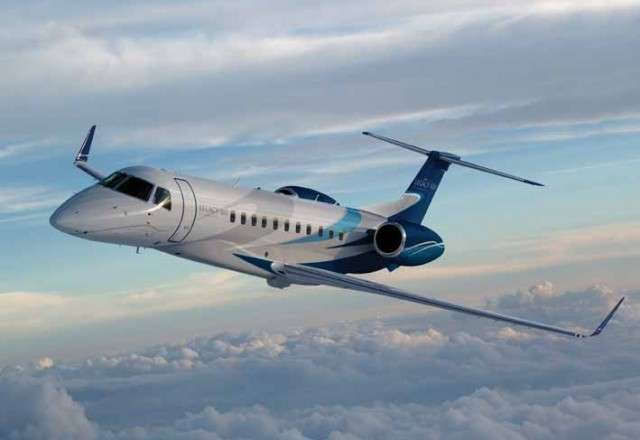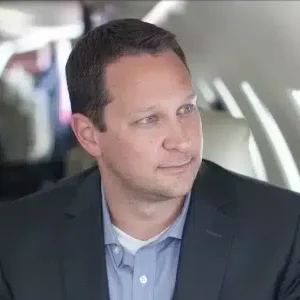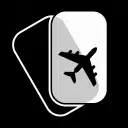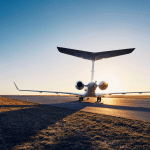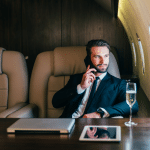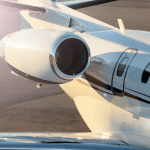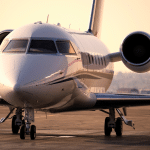Sir Isaac Newton and the Physics of Flight
If you’ve ever wondered how airplanes can fly through the air, you’ve been thinking about the physics of flight.
What are the 4 physics of flight?
Since airplanes are very heavy, it may seem strange that they are able to lift off of the ground and fly. However, flight is possible because of a balance of four different physical forces:
- lift
- drag
- weight
- thrust
Lift and weight balance each other and thrust and drag have to be present in just the right amounts.
Sir Isaac Newton studied math and science, and he discovered three laws of motion that explain a lot about how things move.
What is the Bernoulli Principle of Flight?
Bernoulli’s principle, published by Daniel Bernoulli in 1738, states that as a fluid, which could be a liquid or gas, travels faster, the pressure inside the fluid decreases.
When we combine both Newton and Bernoulli’s studies together, we can explain how airplanes fly.
Who Was Isaac Newton?
Isaac Newton was born on Dec. 25, 1642 and lived with his grandmother as he was growing up, He attended Trinity College of the University of Cambridge. As he was attending college, he began studying math and science. He was very interested in math and physics, and he started writing down some of his ideas about motion and gravity. His ideas about math led to the invention of calculus, which made it possible for people to solve complicated math problems.
Newton also studied white light and discovered the color spectrum. Newton published a science book in 1687 that included his three laws of motion. He worked so hard on his science studies that Queen Anne made him a knight in 1705. Sadly, Newton died in 1727 at the age of 84.
Newton’s Three Laws of Motion
The first of Newton’s laws of motion is known as the law of inertia. This means that an object that’s standing still will not move unless a force causes it to move. A force is either a push or a pull. The law also states that a moving object will keep moving in the same direction and at the same speed unless a force changes this. An easy way to think about this law is to remember that things will keep doing what they are doing unless something causes that to change.
Newton’s second law of motion focuses on what happens when a force makes an object move. This law states that heavier objects need more force to make them move faster or to change the direction they are moving in. The bigger the force, the more acceleration will happen.
The third law of motion states that every action has an equal and opposite reaction. Scientists sometimes call this interaction between forces an action-reaction pair. This means that when you want to slow down or stop a moving object, you have to apply a force to it in the opposite direction that it is moving. It’s these opposite reactions with moving air and engine thrust that make it possible for airplanes to fly.
The Physics of Flight
The physics of flight requires that lift, drag, weight, and thrust happen at the correct time and in the proper amounts. For an airplane to go up into the air, the lift has to be stronger than the force of gravity.
Lift happens at the wings as air passes over them. Airfoils in the wings make the air move over the tops of the wings faster than it moves across the bottoms of the wings. The faster air decreases the air pressure on the tops of the wings, and the air pressure gets higher on the bottoms of the wings, which is the basis of Bernoulli’s principle. This is how lift happens.
The weight of the airplane determines how much lift and thrust it takes to get it off the ground. The thrust comes from a plane’s jet engines and has to be a stronger force than the drag. Drag happens as the airplane naturally resists moving through the air. The shape of an airplane helps reduce the drag, which helps it fly faster.
What are the 3 Laws of Flight?
There are three laws of motion/flight as outlined by Newton:
- Every object in a state of uniform motion will remain in that state of motion unless an external force acts on it.
- Force equals mass times acceleration.
- For every action there is an equal and opposite reaction.
So what is the principle of flying? According to Newton’s third law of motion, when the force of lift is greater that the force of gravity, the aircraft is able to fly. Thrust is what makes the aircraft move forward while in flight.
What are the 7 stages of flight?
When looking at the physics of flight, it’s important to note that there are actually seven stages in the flying process. They include:
- Planning phase
- Takeoff phase
- Climb phase
- Cruise phase
- Descent phase
- Approach phase
- Taxi phase
What are the 4 main flight controls?
Every aircraft is equipped with the equipment they need to fly, including:
- Aielerons
- Elevators/stabilator
- Rudder
Without these, an aircraft wouldn’t be able to take to the skies.
More Information and Reading
- Newton’s Laws of Motion
- Newton’s Laws and Flight
- The Physics of Flight
- Sir Isaac Newton
- Who Was Sir Isaac Newton? (PDF)
- Sir Isaac Newton: Discoveries
- Isaac Newton Facts
- From Galileo to Newton: Physics Emerges
- Sir Isaac Newton and the Scientific Revolution
- Isaac Newton Biography
- The Physics of Flight
- Basic Flight Physics
- Physics of Flight (PDF)
- Beginner’s Guide to Propulsion
- Theory of Flight
- Bernoulli or Newton’s Laws for Lift?
- The Bernoulli Theory of Flight
- Physics for First-Graders
- How Airplanes Fly
Are you ready to book your Dallas to Las Vegas charter flight yet?
Our friendly, expert air charter agents are here to answer questions or start your quote today. Don`t wait, call now and we'll get you on your way to your destination!
Call 888-593-9066